Cracking concrete and 'deferred' construction led to this year's Marquette Interchange ramp closures
MILWAUKEE — In any given summer, there are two things you're sure to find in abundance -- festivals and construction. This year, drivers have encountered closures in and around the Marquette Interchange. It cost more than $800-million dollars to build and is just ten years old. So, many drivers are wondering why is it under construction again?
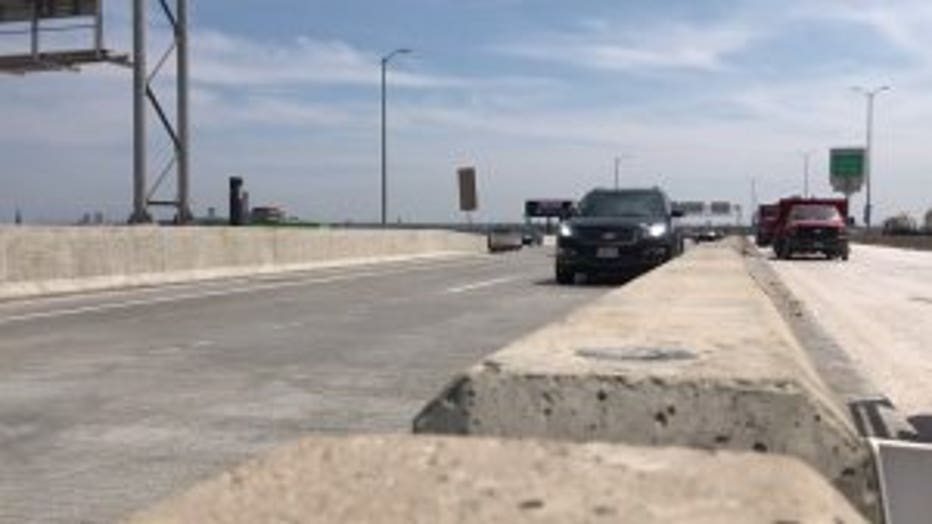
The Wisconsin Department of Transportation says the work on and near the Marquette Interchange ramps is actually two projects going on at the same time and are simply "planned maintenance."
But the FOX6 Investigators found there may be a few cracks in that explanation.
The Marquette Interchange is the heart of Milwaukee's freeway system and over the past 10 to 15 years it's been all too common to find some of those arteries blocked.
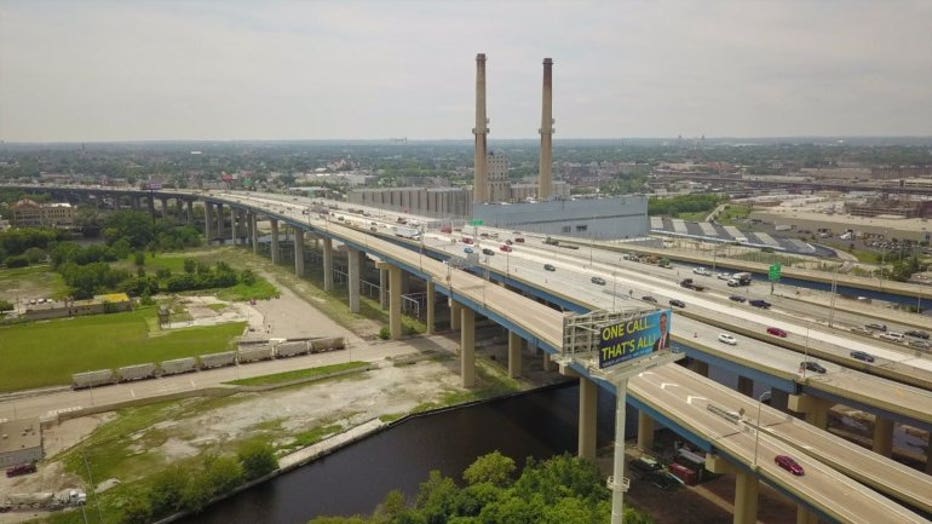
The Valley Bridge, also known as the "high rise" bridge, was first constructed in 1967. The last major re-decking was done in 1989. But an overlay project in 2013 was stopped 1500 feet short of completion and deferred until 2018.
State Senator Tim Carpenter says it's especially concerning since the Marquette Interchange reconstruction was just completed in 2008.
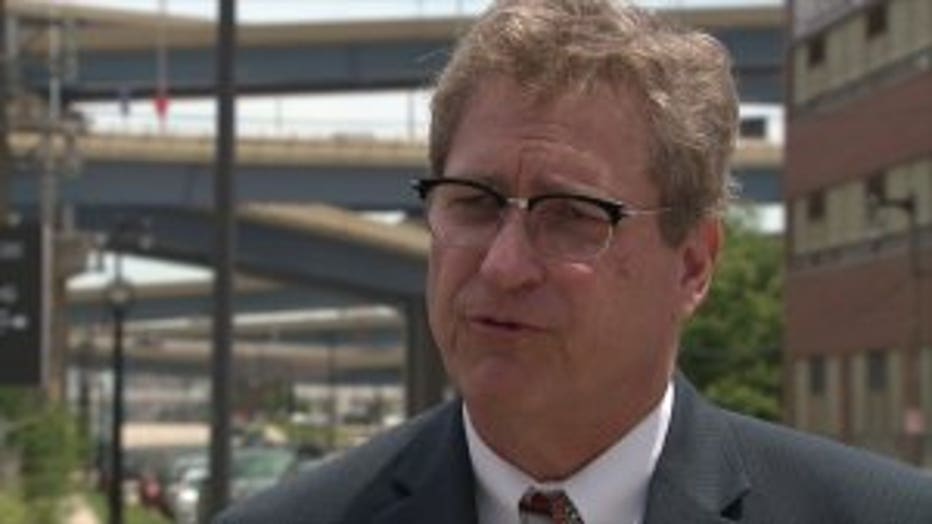
State Senator Tim Carpenter
"During heavy times, Fourth of July, State Fair, Summerfest, Brewers games and things like that," Carpenter said. "I drive around Milwaukee all the time. I was born and raised here, so it is very frustrating when those ramps are closed."
Several of those ramps have been closed again this spring and summer. However, Mike Pyritz of the DOT says it's more than one project.
"What you're really seeing is two separate projects going on at the same time," Pyritz said.

Mike Pyritz
Pyritz says the DOT applied a high-tech polyester concrete overlay to more two dozens ramps.
"It`s a protective coating that goes on the surface of the roadway," Pyritz explained.
Most of that work happened at night, keeping the ramps open during the day.
It was the second project that caused long-term ramp closures -- like the Chicago exit from I-94 Eastbound to I-43 South.
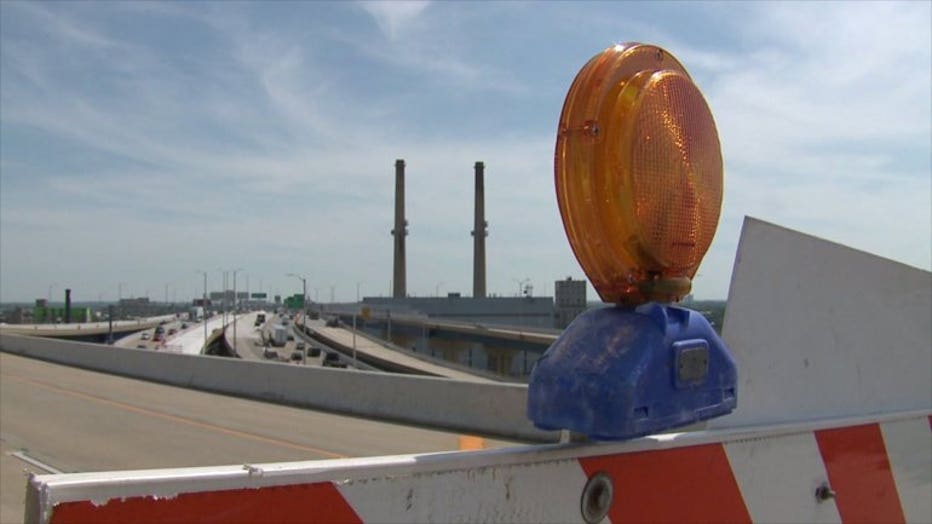
"It has had some traffic impacts along the way," Pyritz said.
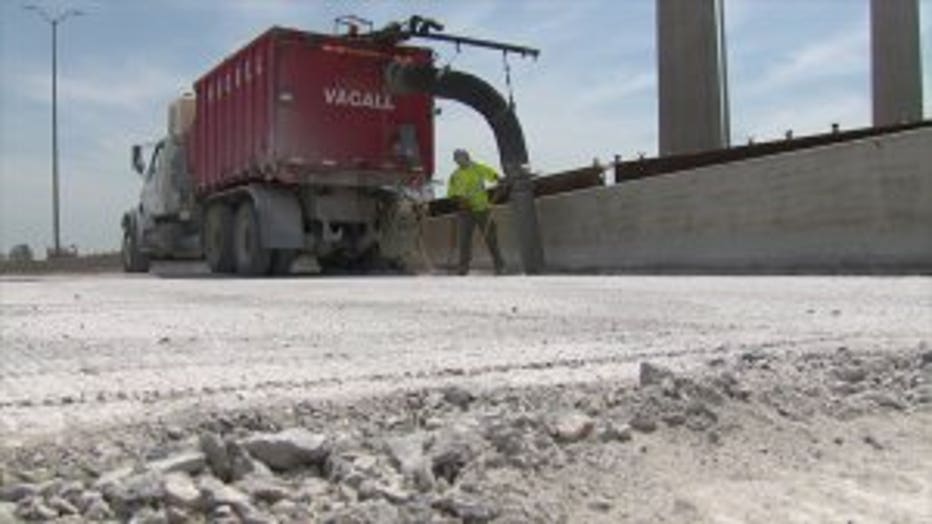
Just south of the interchange, crews are working on the deck of Valley Bridge also known as the High Rise Bridge. They're pulling up two inches of old road surface and replacing it with new concrete.
"It's a very long bridge, there`s a lot of space involved in there," Pyritz said.
This is now the second time in five years that the DOT has closed major interstate ramps to work on the Valley Bridge deck.
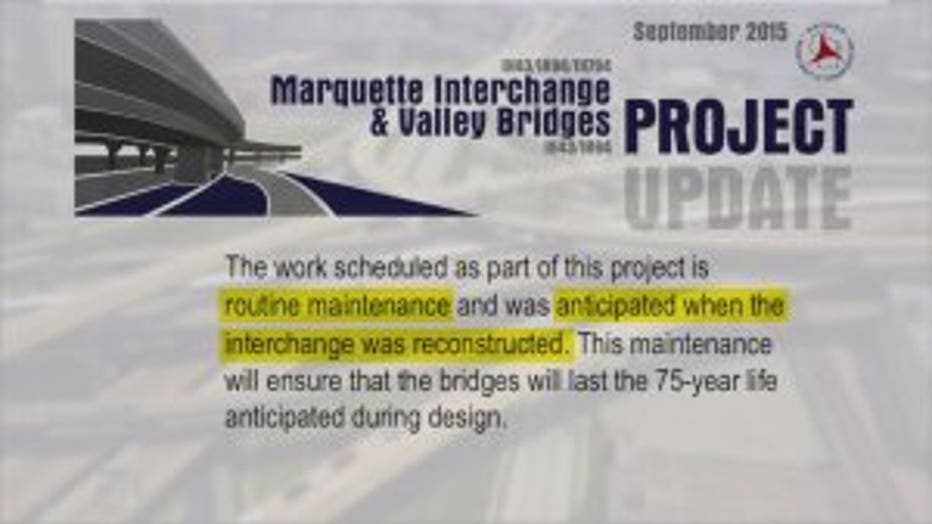
WisDOT combined the deferred Valley Bridge overlay with the sealant work on the Marquette ramps to minimize traffic impacts from the two projects.
In 2013, they rehabbed the southern part of the bridge but stopped 1500 feet short of the Marquette Interchange.
"Why not do that last 1500 feet back in 2013?" FOX6 Investigator Bryan Polcyn asked Pyritz.
"I don't know," he responded.
Five years later, they're back to finish the job.
"It doesn't seem to make sense to do it piecemeal," Carpenter said.
Senator Carpenter, who sits on the Senate Transportation Committee, says it would've made more sense to do the work all at once.
"It would have been more cost-effective for the taxpayers' point of view, plus for the sanity of people driving in that area," Carpenter said.
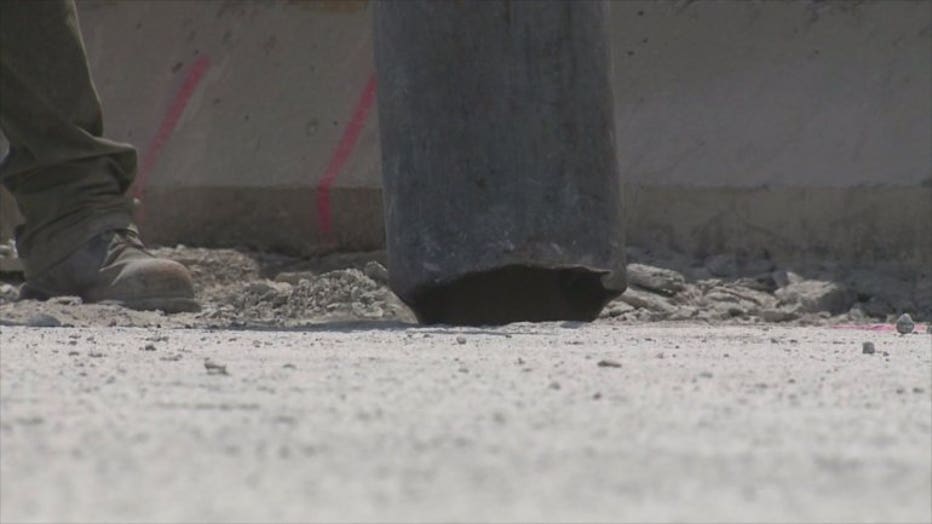
To minimize the traffic impact, the DOT lumped both the Marquette and Valley Bridge projects into one -- describing the Valley Bridge as "routine maintenance" and writing that the Marquette overlays were "anticipated when the interchange was reconstructed."
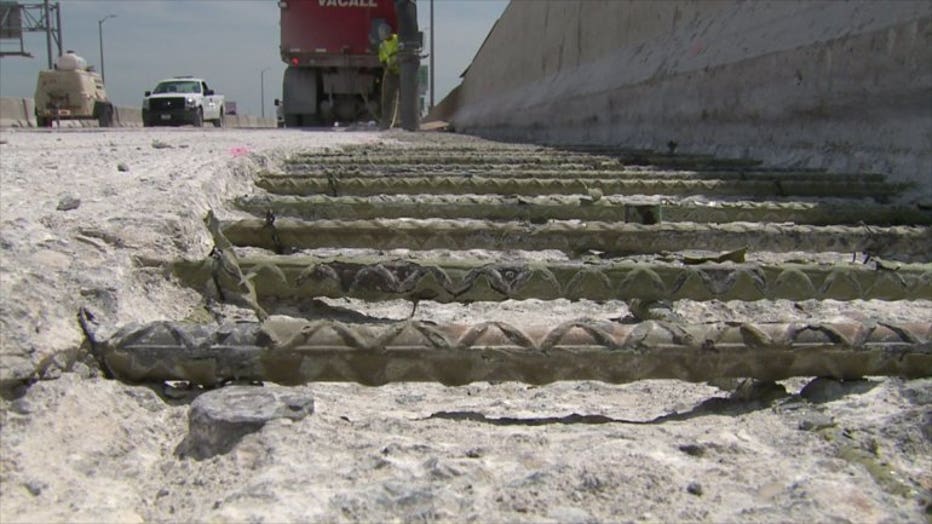
"You generally want to wait about 6 to 8 years after you first construct that before you put that in," Pyritz explained.
However, research by civil engineers at Marquette University shows there may be cracks in that theory.
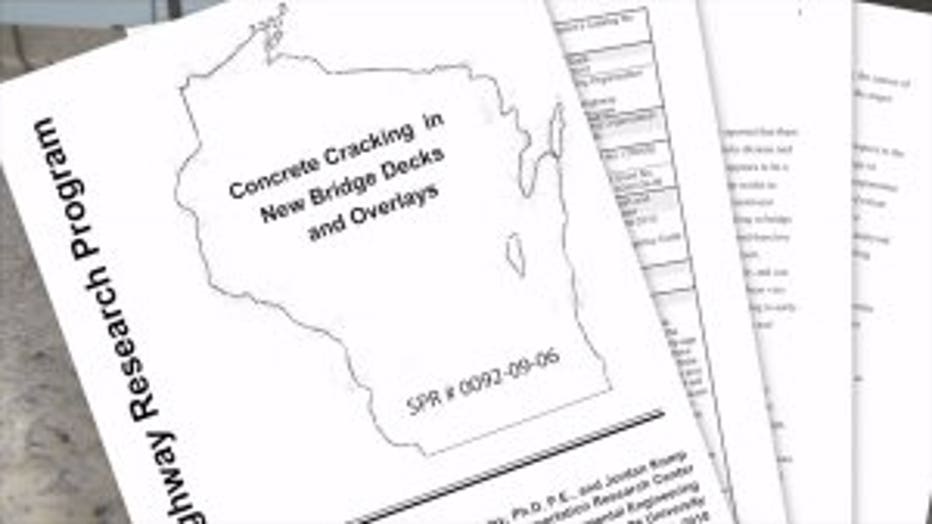
The Wisconsin Highway Research Program at Marquette University has been studying cracks in the Marquette Interchange since at least 2010.
Just two years after the Marquette Interchange was completed, the Wisconsin Highway Research Program raised concerns about cracking concrete in the bridge decks.
The 2010 report indicates that early-age cracks "appear to be a trend for new bridge decks in Wisconsin." And, those cracks could allow de-icing chemicals applied in the winter to get inside the deck and cause "quicker deterioration."
In 2014, the DOT started seeking bids on a project to seal up those cracks. But, other highway projects took precedence pushing the sealing job all the way to 2018.
"And again, it is because of the constraints on the DOT budget," Carpenter said.
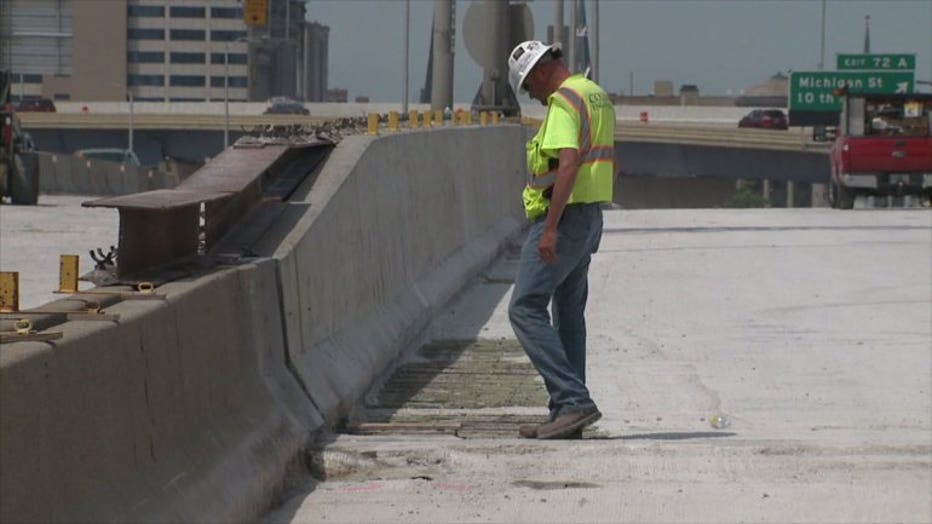
Senator Carpenter says he has a lot of questions for transportation officials.
"I think the Department has to be held accountable on the way they are spending the money," Carpenter said.
But there's one particular question that may be lingering in the minds of drivers.
"Is this interchange gonna keep shutting down every five years?" Polcyn asked Pyritz.
"We should be in pretty good shape now," he said.
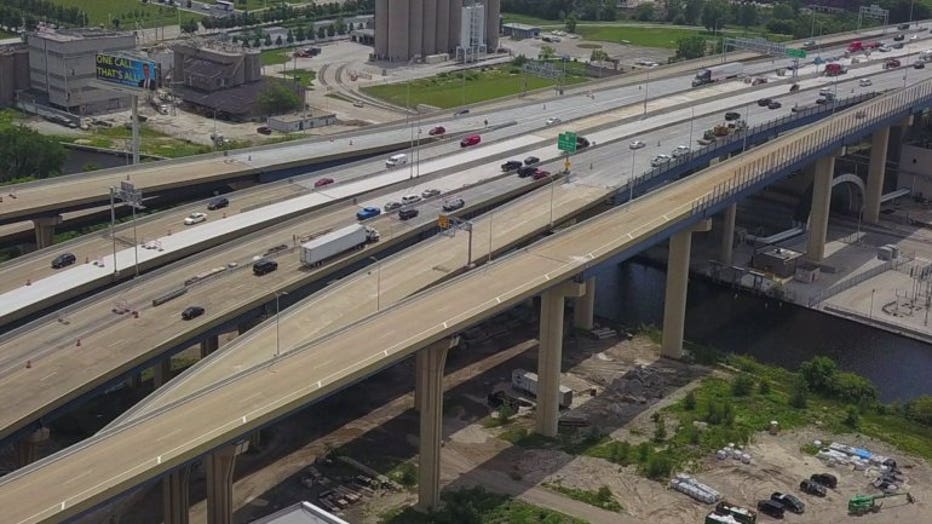
Pyritz says drivers who use the Marquette Interchange are about to get some long-term relief from construction. While the bulk of the work moves somewhere else.
It cost about $15,000,000 to rehab the Valley Bridge and to seal those cracks in the Marquette Interchange.
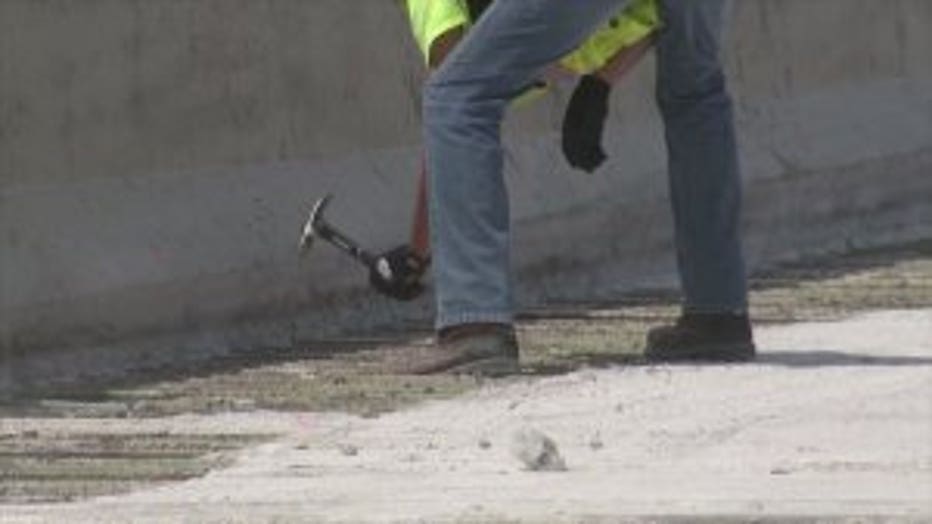
In an email to FOX6, the DOT says they were minor cracks not related to the bridge strength of integrity and that deck cracking is not unique to Wisconsin. They say the polymer overlay will help preserve the decks for their intended life. Meanwhile, they will continue to monitor research and adjust their practices to reduce cracking in the future.
The cracks are not just a concern for the Marquette Interchange. Cracks like these have been happening on brand new bridges across the country and, according to researchers, it's a much bigger problem now than it was 30 years ago.
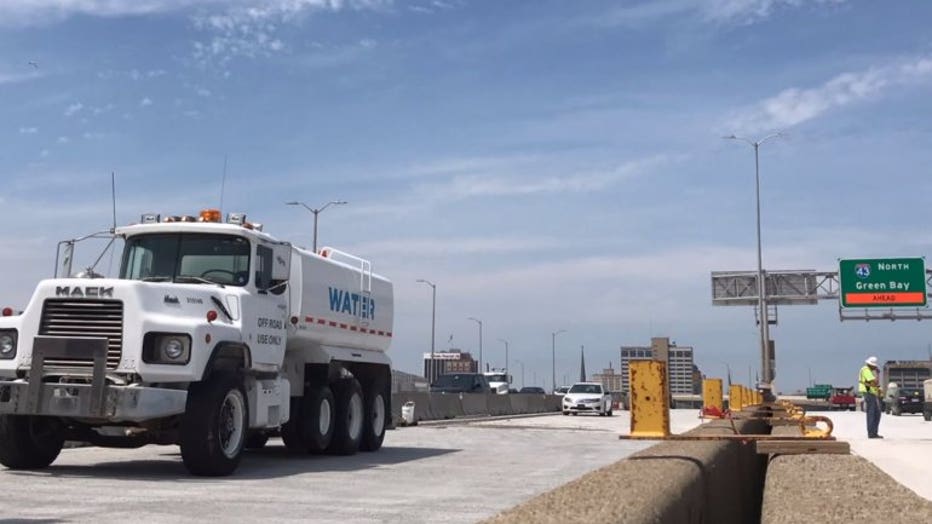
However, since the Marquette Interchange was in 2008, the DOT says it has had multiple changes to its concrete mix design used in other projects like the Zoo Interchange.
Still, WISDOT says the Zoo Interchange will get the same polymer overlay treatment after those brand news ramps have endured five or more years of Wisconsin winters and summers.

